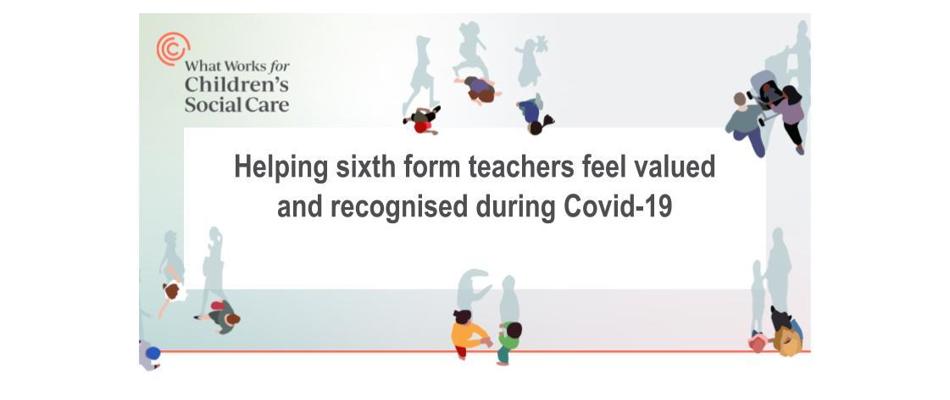Helping sixth form teachers feel valued during Covid
Back
More than ever, it’s important to make sixth form teachers feel valued and rewarded for their work. But how do you do that when sixth form colleges are increasingly financially constrained?
The Covid-19 pandemic has placed increased strain on teachers’ wellbeing, with over half of teachers surveyed reporting that their mental wellbeing had declined since the beginning of the pandemic. There is a clear demand for evidence-based ways to improve wellbeing which are currently lacking. Teachers have also reported feeling very little appreciation by the government during the crisis, having to juggle an increased workload and striving to maintain a good work-life balance, whilst ensuring their students are supported.
Research shows that symbolic awards - non-financial gestures of appreciation (e.g. certificates) - are important for employees’ sense of feeling valued, recognised and respected at work. Receiving notes of gratitude from those who benefit from your work are particularly impactful for wellbeing - one studyfound that notes of gratitude given to employees from students who benefited their work ‘fueled’ their prosocial motivation and increased performance.
Our research team at What Works for Children’s Social Care are recruiting sixth form colleges to join a research study investigating an intervention aimed at making sixth form teachers feel valued and recognised. Specifically, we’ll be sending teachers symbolic awards - namely, notes of appreciation and gratitude coming from their past students, designed to make them feel valued, and therefore happier and more motivated.
The way we’ll conduct this research is through a randomised controlled trial (RCT) - considered the gold standard of evidence in this type of research - where we’ll send the notes of appreciation to half of teachers in the first instance, so that we can compare the wellbeing of those who received a note of appreciation to those who didn’t to determine whether the intervention had any impact on the recipients’ wellbeing.
This intervention is based on research we conducted with social workers across England last year showing that notes of recognition and gratitude from senior-level management had a significant impact on social workers’ sense of intrinsic motivation, sense of feeling valued and recognised, and sense that their work has a positive impact on others, and a positive though non-significant impact on overall subjective wellbeing.
Teachers - like social workers - enter the profession to ‘do good’ and make a positive difference in people’s lives, and these small notes of appreciation, while light-touch, seem to have the potential to have a positive impact on wellbeing.
The study is three months long and will involve administering two short wellbeing surveys to staff, and some administrative support in collecting notes of gratitude from past students. By taking part, sixth forms will be a part of exciting new research aimed at improving teachers’ wellbeing and will receive an individual report on the findings for their own college.
More information can be found here. If you’re interested in learning more, please contact me at Shibeal.OFlaherty@whatworks-csc.org.uk.
Shibeal O'Flaherty is a PhD student at King's College London working on behavioural interventions to support public sector workforce wellbeing, and a researcher at What Works for Children's Social Care, a research group working with DfE to identify promising evidence and tools to promote child wellbeing.

